Zupagrafika’s book chronicles the Modernist booths of europe
independent publisher, author, photography team, and design studio Zupagrafika presents Kiosk, an expansive photobook showcasing the last modernist booths found in Central and Eastern Europe. Featuring over 150 kiosks from cities like Ljubljana, Warsaw, Belgrade, and Berlin, this book offers a rare glimpse into these remaining structures that witnessed the socio-political transformations of the late 20th century. The photographs included in the volume were taken over a decade, and promise to immerse readers into a forgotten architectural realm that many are unaware that it even exists.
all images courtesy of Zupagrafika
the Forgotten Modular Kiosks of the Eastern Bloc
Mass-produced from the 1970s to the 1990s, modular kiosks like the iconic K67, designed by Slovenian architect Saša J. Mächtig, and similar systems – including the Polish Kami, the Macedonian KC190, and the Soviet ‘Bathyscaphe’ – were ubiquitous throughout the former Eastern Bloc and ex-Yugoslav countries. These kiosks were found everywhere, from busy city squares to socialist-era housing estates, serving as hot dog stands, Polish zapiekanka vendors, farm egg and rotisserie chicken sellers, funeral flower shops, newsstands, car park booths, and currency exchange offices. Some kiosks remain active or have been refurbished, while others have been abandoned or slowly disappeared from the urban landscape.
Photographed over the last decade by the founders of Zupagrafika (find more here), David Navarro and Martyna Sobecka, the book includes a foreword by urban explorer Maciej Czarnecki and an introduction by architectural historian Anna Cymer, providing valuable insights into the history of these unique structures.
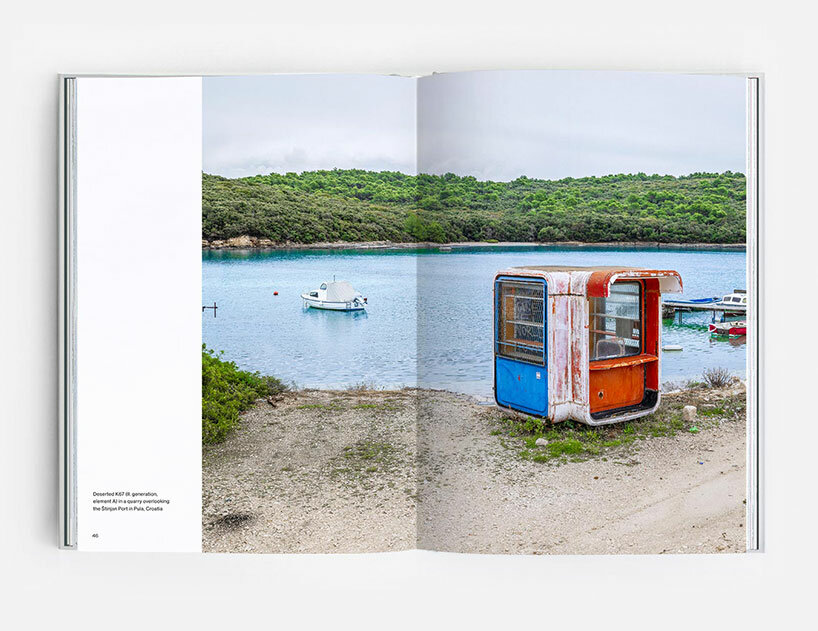
the photobook features over 150 kiosks from cities like Ljubljana, Warsaw, Belgrade, and Berlin
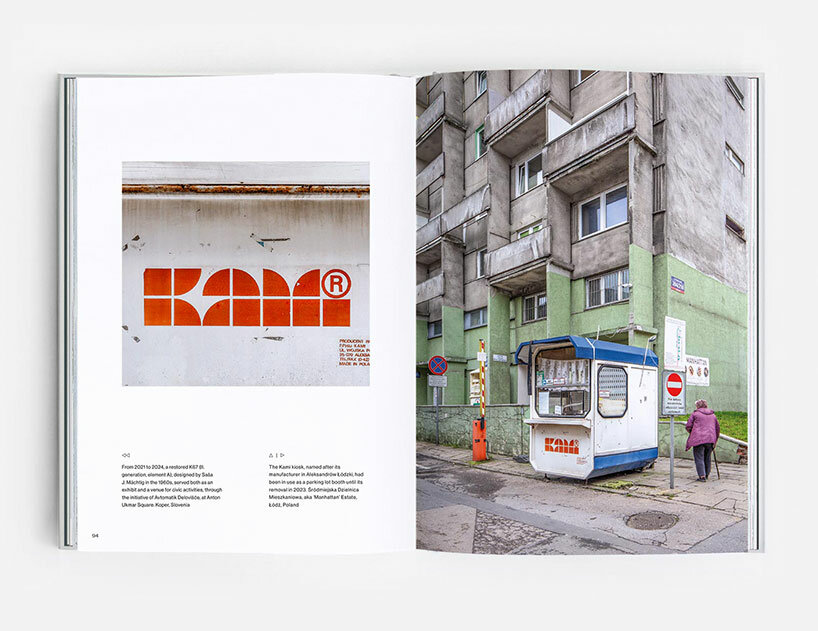
the modular kiosks were mass-produced from the 1970s to the 1990s
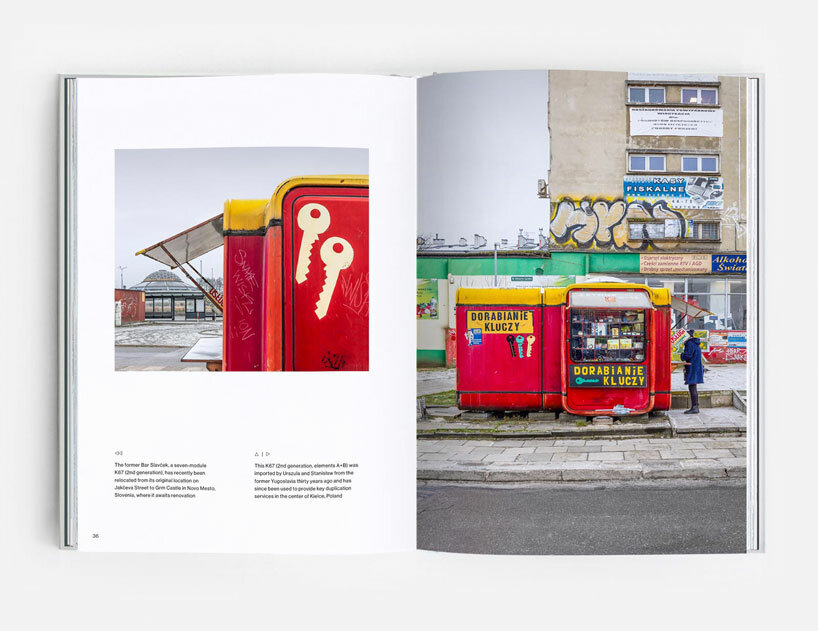
many kiosks were installed in busy city squares and socialist-era housing estates
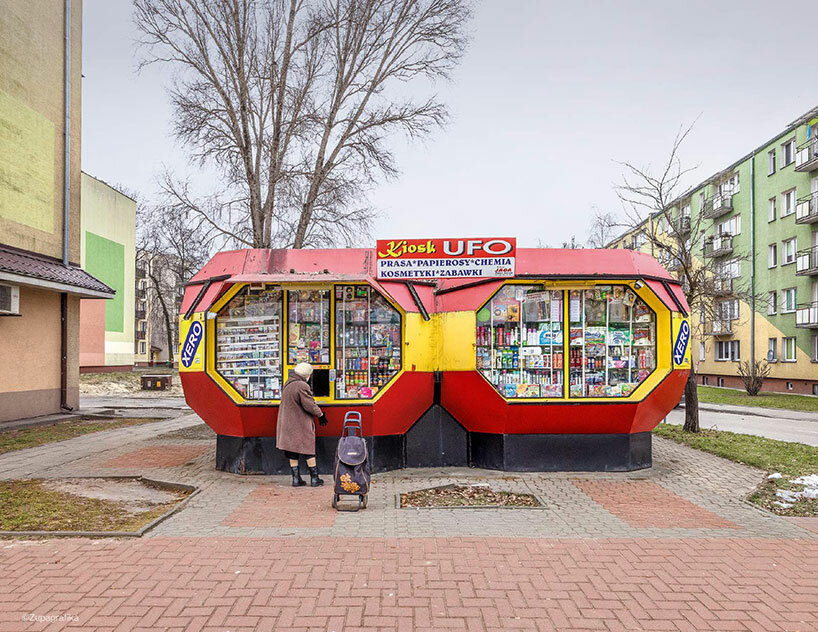
the photographs included in the volume were taken over a decade
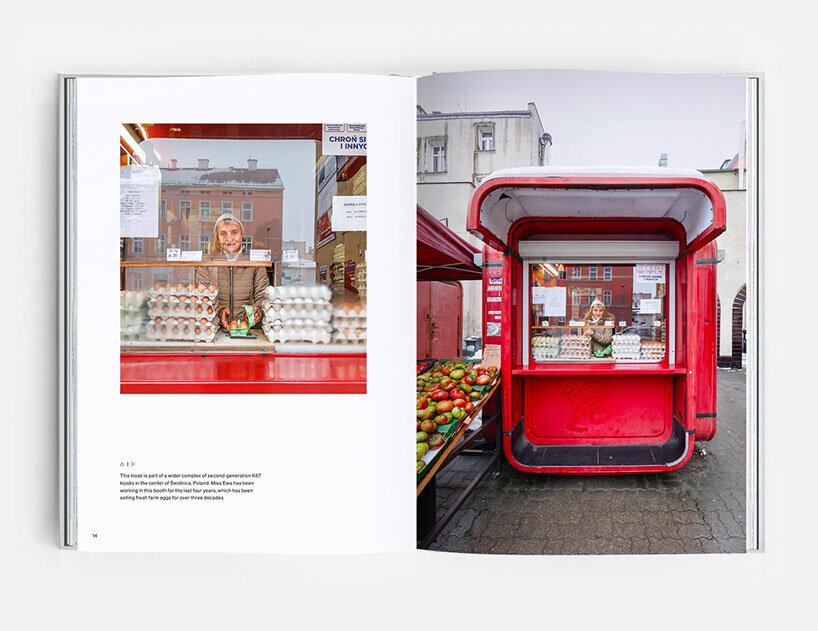
some of the kiosks housed farm egg and rotisserie chicken sellers

